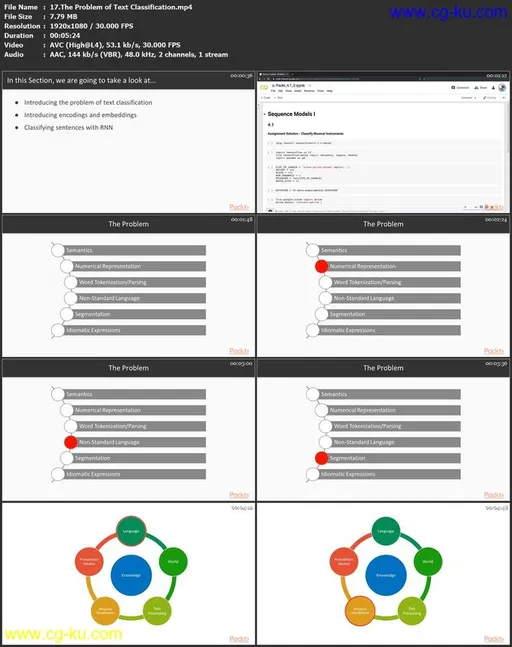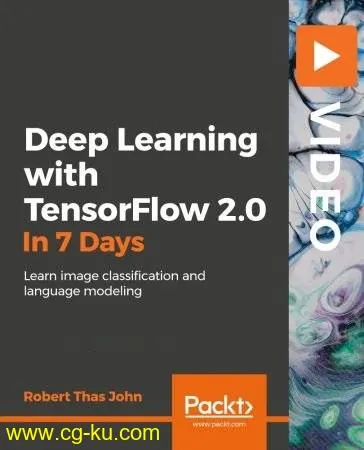MP4 | Video: AVC 1920x1080 30fps | Audio: AAC 48KHz 2ch | Duration: 3h 5m
Genre: eLearning | Language: English | Size:
Seven short lessons and exercises to get you started with deep learning using TensorFlow 2.0 faster than other courses!
Learn
Set up a conda environment for training models
Learn the basics of machine learning and deep learning to help you cut through the jargon
Learn about high-level TensorFlow 2.0 APIs so that you can quickly train your own models
Import data into your models for building real-world applications
Build APIs for software applications to make use of your model in production
Use Convolutional Neural Networks (CNN) for image classification
About
Image classification and language modelling are two fields of computing that are difficult for computers to tackle without implementing deep neural networks. How do you recognize the difference or similarity between two fruits or two words? This is required for various applications, ranging from e-commerce sites to educational software. While these tasks are non-trivial, TensorFlow provides a gentle introduction to solving them.
In this course, you will learn how to get started with TensorFlow 2.0 in a unique and enticing way, using an ambitious approach that's perfect for learning and implementing deep learning models. You will learn how to start building and training your own models to classify images and also differentiate between different text. Using TensorFlow at a high level, you will learn to implement Convolutional Neural Networks (CNN), as well as sequence networks such as Long Short-Term Memory (LSTM) and Recurrent Neural Networks (RNN).
By the end of this course, you will be confident about building and implementing deep learning models effectively and easily with TensorFlow 2.0, collecting image data, splitting it into training, validation and test sets, and training a model to classify images.
All the code and supporting files for this course are available on GitHub at
Features
Design and train a multilayer neural network with TensorFlow.
Implement Deep Neural Networks, Convolutional Neural Networks, and Recurrent Neural Networks
Using deep learning for well-known ML problems: regression, classification, clustering, and autoencoding


发布日期: 2019-10-07